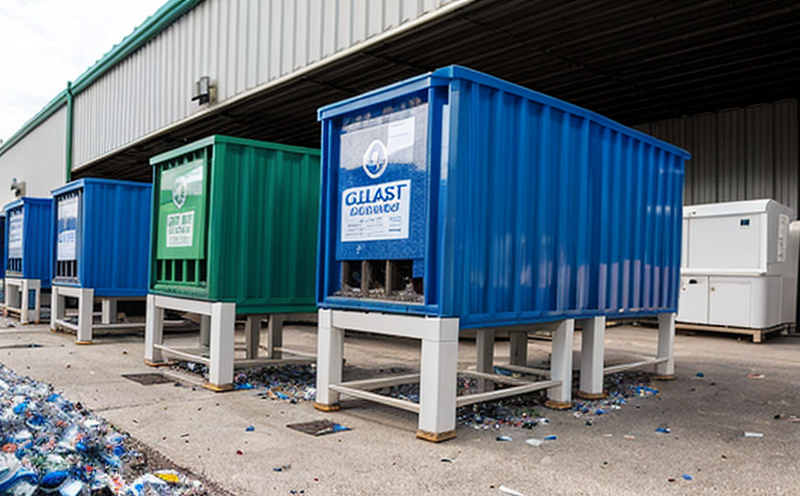EN 12880 Acid Resistance of Recycled Glass
The CEN standard EN 12880 specifies the method for determining the acid resistance of recycled glass. This test is crucial in ensuring that materials meet quality and safety standards, particularly when they are intended for use in products where long-term durability and chemical stability are essential.
The procedure involves exposing a standardized specimen to hydrochloric acid under controlled conditions. The specimens used can be either prepared from the recycled glass or commercially available reference materials. This test helps assess whether the recycled glass can withstand acidic environments without degrading, which is critical for products like tiles, countertops, and other construction materials.
The testing protocol begins with precise preparation of the specimens, ensuring they are representative of the material being tested. The specimens are then subjected to acid exposure in a controlled environment. Key parameters include temperature, humidity, and duration of exposure, all of which can significantly influence the outcome. After the test period, the specimens undergo visual inspection and quantification of any visible changes.
EN 12880 is particularly relevant for quality managers, compliance officers, and R&D engineers who need to ensure recycled glass meets stringent industry standards. For procurement teams, this standard provides a benchmark for selecting suppliers whose products comply with the required specifications.
The test results are reported in terms of weight loss or other measurable changes, providing quantitative data that can be compared against specified limits. This ensures that manufacturers and end-users have confidence in the recycled glass’s performance under real-world conditions.
Understanding the acid resistance of recycled glass is essential for sustainable waste management practices. By ensuring the quality of recycled materials, this test supports broader environmental goals by promoting the use of recycled resources while maintaining product integrity.
| Parameter | Description |
|---|---|
| Test Specimen | Prepared from recycled glass or reference material |
| Type of Acid | Hydrochloric acid (HCl) |
| Temperature and Humidity | Controlled conditions to simulate real-world environments |
| Duration of Exposure | Varies based on specific application requirements |
| Visual Inspection | Evaluation for visible changes in the specimen |
Applied Standards
The test procedure outlined in EN 12880 is internationally recognized and widely adopted, ensuring consistency across various sectors. This standard aligns with other global standards such as ISO 9037 for glass characterization and ASTM C654 for chemical durability of glass.
| Standard | Description |
|---|---|
| EN 12880 | Determination of the acid resistance of recycled glass |
| ISO 9037 | Characterization and classification of glass |
| ASTM C654 | Chemical durability of glass |
Industry Applications
The application of EN 12880 in various industries ensures the quality and sustainability of products derived from recycled materials. This is particularly important for sectors like construction, where long-term durability is crucial.
In the construction industry, ensuring that recycled glass meets acid resistance standards is vital for tile manufacturers. Tiles made from recycled glass must withstand acidic environments within buildings without degrading. Compliance with EN 12880 helps ensure these products meet stringent quality and safety requirements.
The test results are used by architects and engineers to select appropriate materials for construction projects, ensuring that the chosen materials can endure the environmental conditions they will face over their lifespan.
Environmental and Sustainability Contributions
The use of recycled glass in products like tiles not only reduces waste but also supports broader sustainability goals. By testing for acid resistance according to EN 12880, manufacturers ensure that the recycled materials are fit for purpose and can withstand environmental stresses.
This standard contributes to sustainable practices by promoting the reuse of resources, reducing the need for raw material extraction, and minimizing waste sent to landfills. It supports green building initiatives by ensuring that recycled glass is a reliable component in environmentally friendly construction projects.





